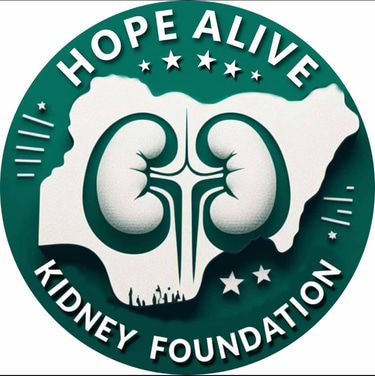An overview of kidney disease
In Nigeria, the leading causes of kidney disease are high blood pressure, diabetes and kidney inflammation. Other causes of kidney disease include high cholesterol, kidney infections, kidney stones, polycystic kidney disease, environmental pollution, unsafe drinking water and abuse of painkiller medications. Older people and individuals who smoke or are obese have a greater likelihood of developing chronic kidney disease. Low birth weight due to maternal nutritional status is associated with kidney disease.
The symptoms of kidney problems may include swollen face or swollen hands, feet or legs, sudden pain, changes in urine appearance, and frequent urinary tract infections. People with kidney failure may experience nausea, vomiting, weakness, confusion, difficulty concentrating and loss of appetite. Kidney infection can be detected using a urine sample to test for microorganisms, blood or pus in urine.
The health of the kidney can also be tested by collecting blood samples for kidney analytes like electrolytes, urea and creatinine.
The kidneys are like filters that sieve out toxins, excess water and waste products from the blood and store them in the bladder, to later be expelled through urine. Kidneys regulates the level of acidity and basicity of fluids in our body, salt level, and potassium levels in our body. They produce hormones that regulate blood pressure and control the production of red blood cells. When there is a problem with the kidney, it causes kidney disease.
Acute kidney disease occurs when kidneys suddenly stop working or when the blood flow to the kidneys is not enough. It also happens when there is direct damage either by a physical injury or a disease like diabetes, high blood pressure, or other disorders to the kidneys or when urine is backed up in the kidneys without being expelled.
Chronic kidney disease is a progressive and longstanding disease which jeopardizes survival and quality of life but can be managed therapeutically by renal replacement therapy — used to support patients with renal failure and is occasionally used to perform the functions of the kidney. One of the important techniques used in RRT is dialysis. The longstanding disease of the kidneys can lead to renal failure. Chronic kidney disease often has no symptoms in its early stages and can easily go undetected in most people until it is in its advanced stages.
People are sometimes unaware that kidney disease can often be prevented. Kidney problems can be prevented by making healthy food choices such as fresh fruits, fresh or frozen vegetables, whole grains, and low-fat or fat-free dairy products. Serious kidney disease may lead to complete kidney failure and the need for dialysis treatments or a kidney transplant to stay alive.
Maintaining healthy kidneys requires that individuals adhere to preventive measures such as controlling their sugar intake, regular exercise, monitoring their blood pressure, and limiting the intake of pain killers.
Living with kidney disease should not be a death sentence. Nigerians with kidney disease deserve to participate in life and not have their social interactions interrupted. This is the goal of the Hope Alive Kidney Foundation..
A Nigerian Perspective
Address
AB10, Ecowas Drive, Sunnyvale Estate, Lokogoma, Abuja.
Engagements
Programmes
hopealivekidneyfoundation@gmail.com
info@hopealivekidneyfoundation.org
© 2024. All rights reserved.
